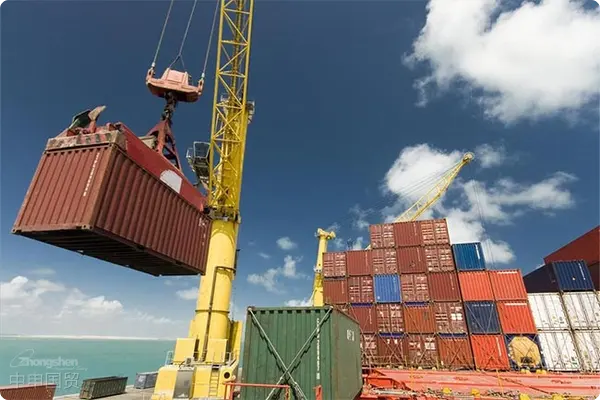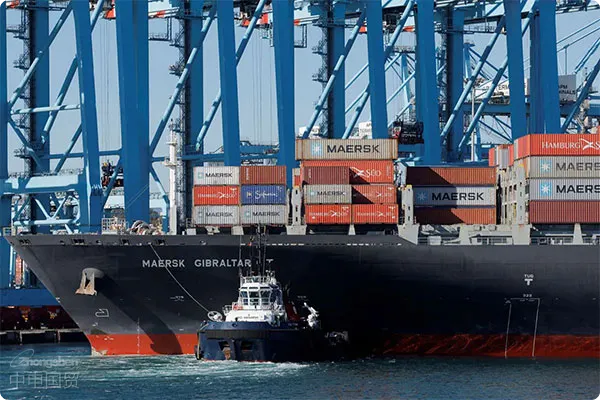- Shanghai Zhongshen International Trade Co., Ltd. - Two decades of trade agency expertise.
- Service Hotline: 139 1787 2118

In todays complex international trade environment,Export Drawbackis a critical component for enterprises to reduce cost burdens and enhance competitiveness. However, export tax rebates involve numerous policies, regulations, and complex procedures, which deter many companies. Professional export tax rebate agency services have emerged to provide comprehensive, efficient, and specialized solutions. A deep understanding of their advantages, operational processes, and significance is vital for enterprises to achieve sustainable development in international trade.
I. Advantages of Professional Export Tax Rebate Agency Services
Expertise and Experience Advantage
Professional export tax rebate agencies employ expert teams proficient in taxation, customs,foreign tradeand other fields. They thoroughly research export tax rebate policies across countries, understanding subtle differences and trends. For instance, rebate rates for different product categories may vary significantly across regions, and agencies can accurately identify and maximize rebate benefits for enterprises. Moreover, their extensive operational experience enables them to handle special customs declaration scenarios or complex tax audit issues with ease. For enterprises, this is a cost-effective way to access professional resources without investing heavily in training their own teams.
Risk Mitigation and Compliance Assurance
Export tax rebates involve strict compliance requirements. Non-compliance may result in severe penalties, including fines, reputational damage, or even loss of export privileges. Professional agencies ensure full compliance with legal and regulatory requirements. They rigorously review documents such asExport Clearanceinvoices, VAT invoices, and sales contracts to avoid discrepancies or errors. Additionally, agencies stay updated on policy changes, ensuring enterprises operate within legal boundaries and effectively mitigate operational risks.
Efficiency Improvement and Accelerated Fund Recovery
For enterprises, the speed of fund turnover directly impacts operational efficiency. Professional agencies efficiently handle all stages of the rebate process. They are familiar with rebate declaration systems, enabling fast and accurate data entry and document preparation. Compared to in-house processing, agencies significantly shorten the rebate cycle. For example, complex cases may take months for self-filing, but agencies, leveraging their expertise and communication channels, can reduce this to weeks or less. This accelerates fund recovery, providing robust financial support for sustainable development.
II. Operational Process of Professional Export Tax Rebate Agency Services
Connection between the Enterprise and the Agency
First, the enterprise needs to select a reputable and experienced professional export tax rebate agency. After preliminary communication, both parties sign a detailed agency service agreement to clarify their respective rights and obligations. The agreement includes the scope of services (such as whether it covers customs declaration agency, tax rebate filing, tax consultation, etc.), service fee standards, confidentiality clauses, and the division of responsibilities between the parties in the tax rebate process. The enterprise needs to provide the agency with basic company information, such as a copy of the business license and tax registration certificate, for the agency to file and conduct subsequent operations.
Data Collection and Organization
The enterprise provides various export-related documents as required by the agency, which serve as the basis for the export tax rebate. These mainly include the export customs declaration form (must be the original copy reviewed and stamped by customs), value-added tax special invoices (the information on the invoices must match the customs declaration form, including product name, quantity, amount, etc.), export sales contracts (the contract terms should comply with international trade practices and clearly state the export situation), packing lists (detailing the packaging of the goods), and shipping documents (such as bills of lading or waybills, proving the transportation of the goods). After receiving these documents, the agency will carefully review and organize them to ensure their completeness and accuracy.
Tax Rebate Declaration and Tracking
Based on the documents provided by the enterprise, the agency prepares the tax rebate filing documents in accordance with the format and requirements stipulated by the tax authorities. This process involves accurate data entry and calculations, such as the FOB price of the exported goods and the tax rebate rate. Once the filing documents are completed, the agency submits the tax rebate application to the tax authorities via the electronic filing system. After the application is accepted, the agency closely monitors the review progress and promptly responds to any inquiries or requests from the tax authorities. If issues arise during the review, such as additional documentation or data adjustments, the agency will quickly communicate with the enterprise and coordinate solutions to ensure the smooth progress of the tax rebate filing.
Once the tax department approves the tax rebate application, the tax rebate funds will be allocated to the account designated by the agency as required. A regular agency will settle the tax rebate funds to the enterprise in a timely and full amount in accordance with the agreement signed with the enterprise. In this process, the agency will provide a detailed settlement statement, clearly listing details such as the tax rebate amount, deducted agency fees (if any), etc., ensuring that the enterprise has a clear understanding of the flow and amount of funds.
Once the tax authorities approve the tax rebate, the rebate amount will be transferred to the account designated by the agency. The agency deducts the corresponding service fees as per the agreement with the enterprise and promptly pays the remaining rebate amount to the enterprise. Throughout the process, the agency maintains transparent and standardized operations to ensure the enterprise clearly understands every step of the tax rebate process and the flow of funds.
Conclusion
Professional export tax rebate services play an indispensable role in modern international trade. They provide enterprises with professional support, helping them navigate the complex field of export tax rebates smoothly. By leveraging the expertise of agencies, enterprises can focus more on their core business, improve operational efficiency, reduce operational risks, and accelerate capital recovery. With the further development of international trade, professional export tax rebate services are expected to continuously optimize and innovate, creating more value for enterprises and helping them gain a greater competitive edge in the global market.
Related Recommendations
? 2025. All Rights Reserved. Shanghai ICP No. 2023007705-2  PSB Record: Shanghai No.31011502009912
PSB Record: Shanghai No.31011502009912









